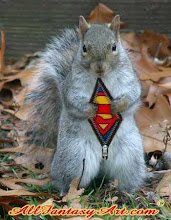
I am reading a book called The Book That Changed My Life: 71 Writers Celebrate the Books That Matter Most to Them, edited by Roxanne J. Coady & Joy Johannessen. As the title explains this slender book is compiled of (short) essays by well-known writers about one (or more) life-altering books. This is precisely my kind of book. A book with a list of books. Like Nancy Pearl's Book Lust and More Book Lust well-known authors like Dorothy Allison, Dominck Dunne, Frank McCourt, Anne Perry, and many more write in The Book That Changed My Life and tell us of times in their lives when they were in deepest despair and a book literally saved them from their own sense of isolation, loneliness. They also write about the pleasure of reading, of discovery, of learning, of the "come to Jesus moment" a particular book might offer the reader. Literally and figuratively.
In her essay "Saved by Ida-Ida" Harriet Scott Chessman writes of Gertrude Stein's Ida, "I had never read a novel like Ida, so experimental, such a surprisingly giddy ride. Ida's life capitulated me back to my own childhood, when I'd known books really could change the world through the sheer force of imagination." I know what she means. when I first began to study Gertrude Stein in college I was euphoric in my discovery. I had read a poem here and there, "Very fine is my valentine" but then I read everything she wrote, and I learned about her life, and I was star struck for this dead, squat, somewhat ego-maniacal Jewish, lesbian, ex-pat, friend to Picasso and Matisse, friend to Alfred Steiglitz. I was hooked. Forever. Stein is what I read if I am stuck in my own writing, I keep her anthology close by and I just pick a page and read and the repetition of her words often (not always) act as some sort of stimulant. There are recordings of her reading her work. Old, scratchy, and just fine. Stein remains an enigma to me even though I know a lot about her. It's her writing. Her genius writing keeps me in awe-inspired.
There are so many books that changed me and my life for better or worse. I wish I could write long, slavering love letters to all of their authors. I guess I am already, in a way. But, for the sake of space, I will stick with just one.
Harriet the Spy by Louis Fitzhugh. Oh, this book! This was the book that inspired me to be a writer and a girl spy. Both things I have achieved with aplomb. Blogging is very useful this way. It kills two birds with one stone. Harriet, as a character, was brilliant. She wore her orange hoodie and her canvas sneakers and carried her notebook everywhere, and was sassy and smarter than her parents, her teachers, and, she thought, her friends. Harriet, hiding in the dumbwaiter is an image, indelibly implanted in my brain. I have written all these years because of Fitzhugh's Harriet. And, have sometimes gotten myself in a spot of trouble just like Harriet for not having the ability to know who should see what. Lots and lots of people have written on this book, but that doesn't make it any less powerful for me.(See the entire interwebs).
Harriet was an antithesis to the social convention that girls should aspire to only be ladies and never spies. The illustrations are fantastic and add to Harriet's adventures in New York's Upper East Side. Heartbreakingly, Louise Fitzhugh died of a brain aneurysm at age 46 and thus has a very small oeuvre to offer as her legacy.
Harriet speaks to girls and boys who need to be themselves, who have unintentionally (or on purpose) hurt their friends, and need forgiveness, and those who are misunderstood by their family and their classmates.
Harriet reminds us that it is never easy to just be yourself, , as she says "I want to remember everything. And I want to know everything." Like Stein's Ida, Fitzhugh's Harriet, in her own way, liked to "talk, to sing, and she liked to change places." Harriet says to Ole Golly, "I want to remember everything. And I want to know everything!" I know how she feels.
I have misplaced my copy of Harriet the Spy, but as my birthday is weeks away, I have faith that someone will know what to do.
To me, reading, whether for pleasure or pain, is like breathing. As cliche as it is, it is like breathing. The sensory experience of the book, especially a library book, with that smell, the heft of the paper, maybe cream-or egg shell in color, the feel of the type on the page, the history of the typesetting, the plastic cover protector, is real-life magic.

No comments:
Post a Comment